AITA for filling a few faux Amazon packages with my dog's s**t to teach the two theiving neighborhood kids who have been stealing my packages a lesson?
In a quiet neighborhood, a string of petty thefts has left one resident both frustrated and determined. For months, mysterious packages have vanished from outside an apartment, stolen by two young girls whose careless actions have sparked a silent war of wills. With each stolen item, the tension grows, blending anger with a desperate hope to teach a lesson without involving harsh consequences.
Caught on camera and fueled by a mix of exasperation and creativity, the resident takes an unconventional stand. Instead of calling the authorities or escalating the conflict, they choose to fight back with a shocking yet clever retaliation—turning their stolen packages into a message of deterrence. This quiet battle is as much about reclaiming respect as it is about protecting personal space in a world where innocence and mischief collide.
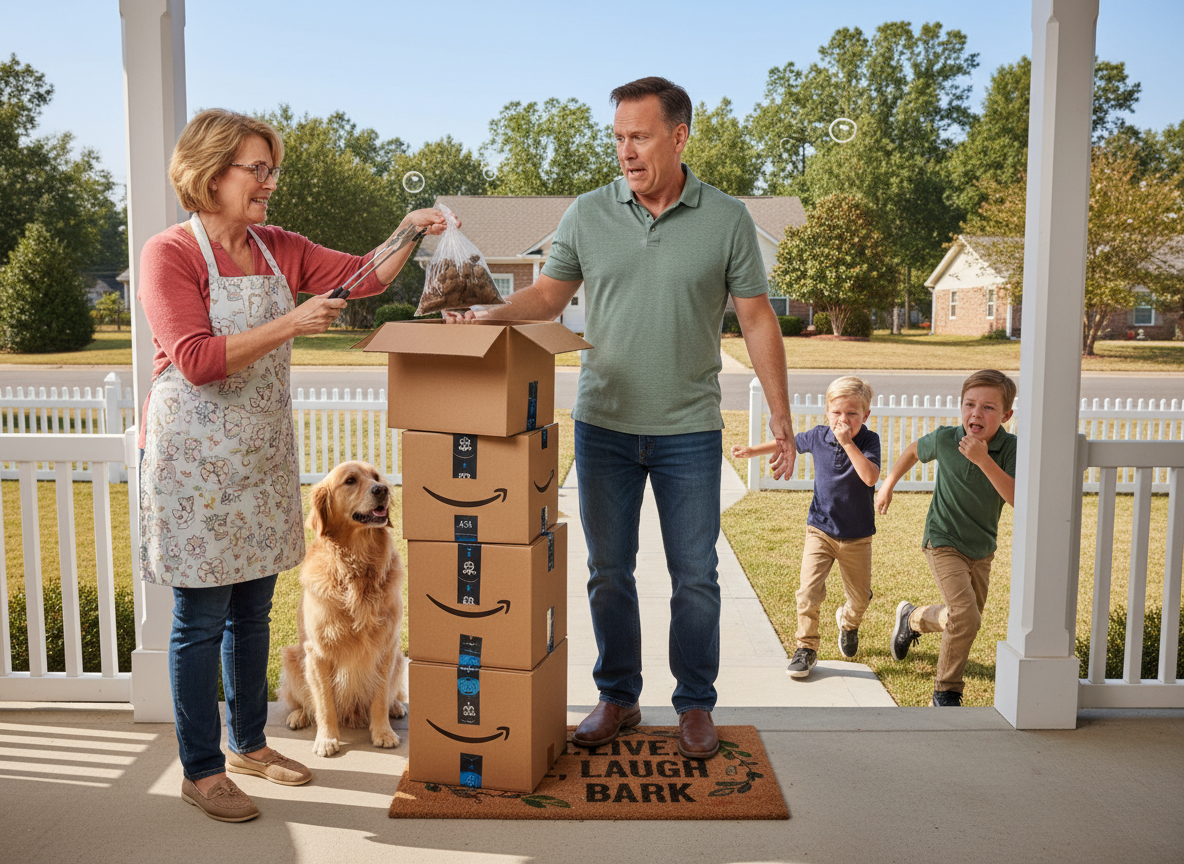
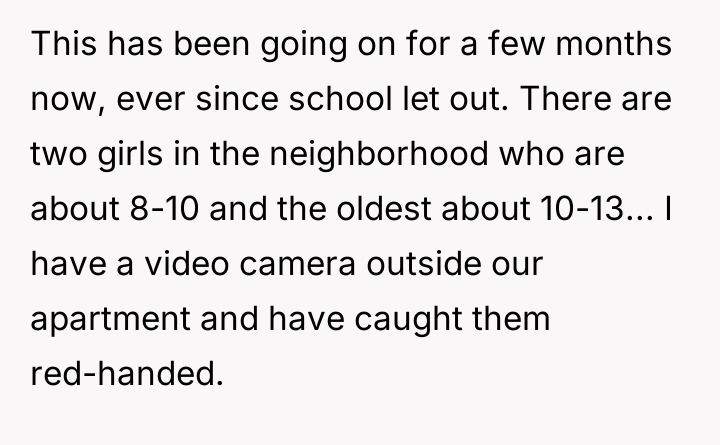
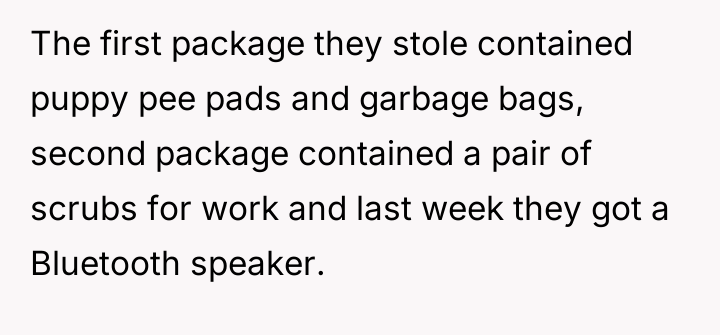

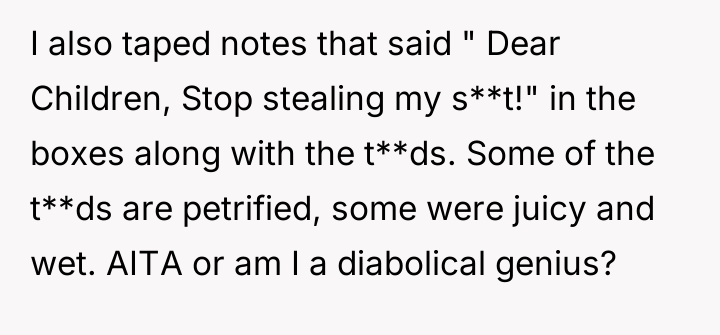
Subscribe to Our Newsletter
As renowned family therapist and author, Dr. Terrence Real, states, “When we don't assert our boundaries, we are implicitly saying that other people’s behavior doesn't matter to us.” This sentiment applies to the OP's initial situation, where the repeated theft indicated a complete lack of respect for their property, and the failure of external authorities (parents/police) to intervene left the OP feeling powerless to establish necessary limits. The OP’s reaction, while stemming from a place of justifiable anger and boundary violation, is a clear example of attempting to enforce informal justice through indirect, retaliatory means rather than formal or direct communication. Filling packages with excrement moves the action from personal defense into harassment or property damage, depending on jurisdiction. While the intent was to deter future theft by creating a memorable, negative consequence—a form of negative conditioning—this method bypasses effective conflict resolution. It assumes the perpetrators will learn a lesson about property rights, rather than simply learning that the victim is unpredictable or retaliatory. The OP’s action was inappropriate due to its extreme and unsanitary nature. A more constructive recommendation would have been to focus on escalating formal reporting (e.g., filing a police report despite initial reluctance, as property theft is a crime) or attempting one final, documented communication directly with the parents stating the next step would be formal legal action, rather than resorting to personal, offensive retaliation.
REDDIT USERS WERE STUNNED – YOU WON’T BELIEVE SOME OF THESE REACTIONS.:
What started as a simple post quickly turned into a wildfire of opinions, with users chiming in from all sides.
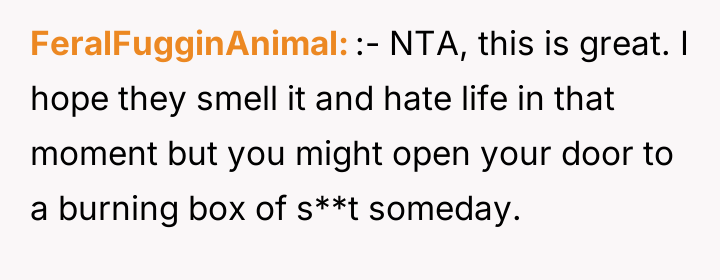
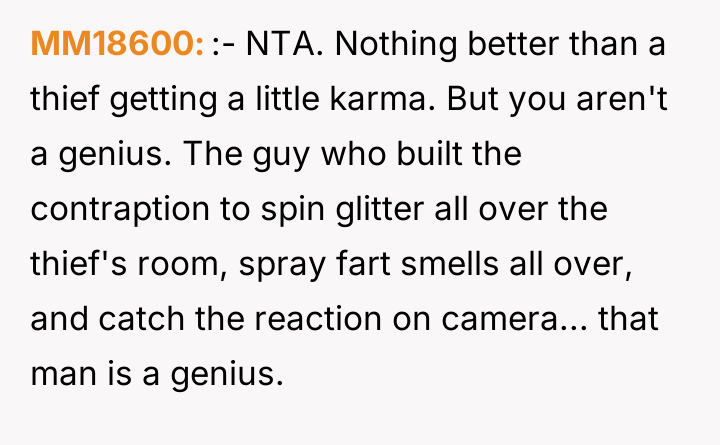
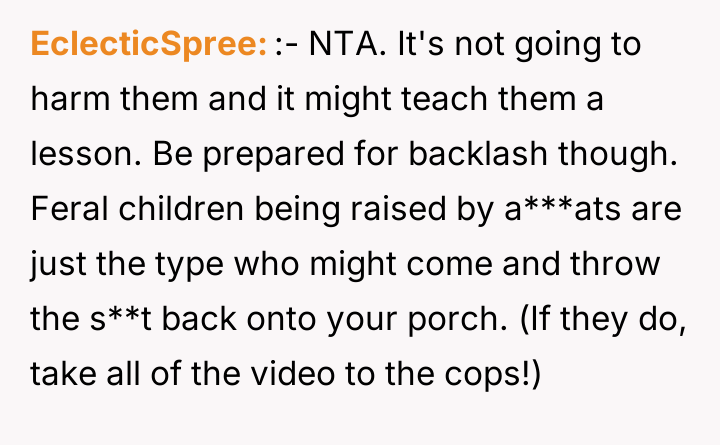
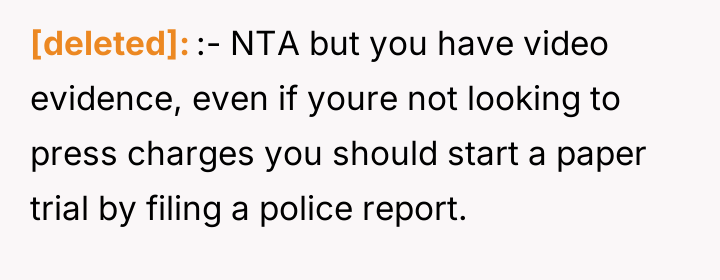
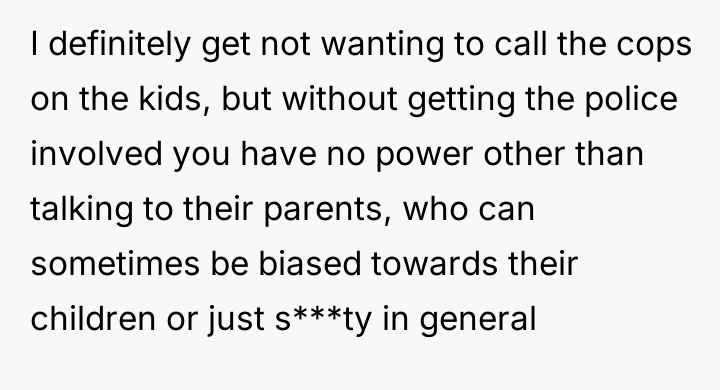

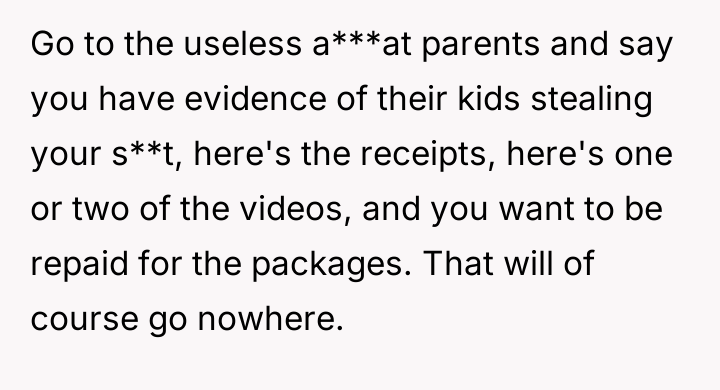
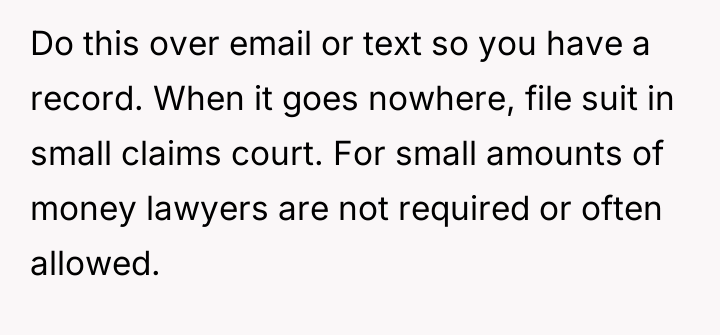
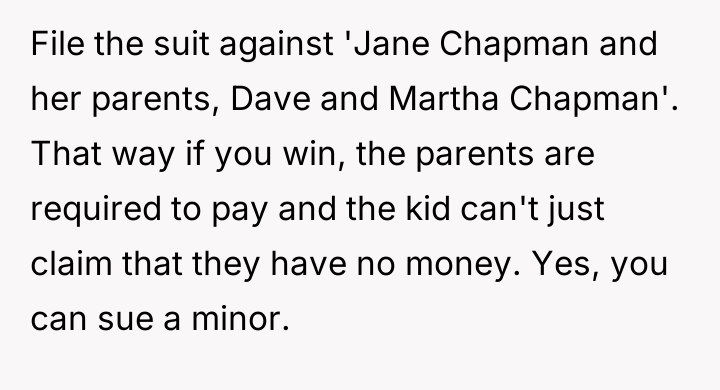

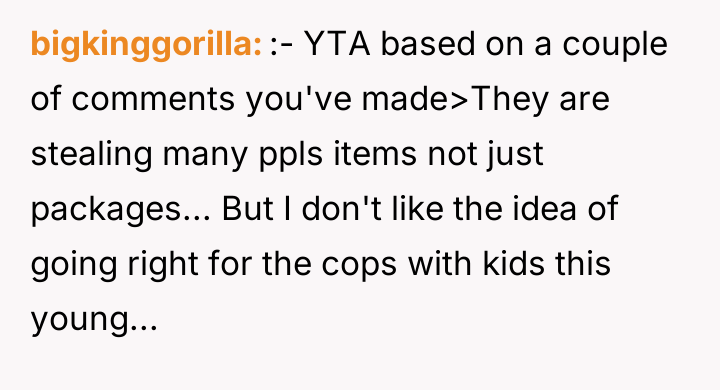
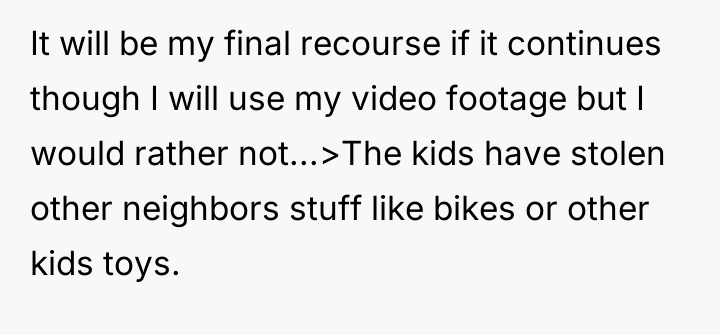
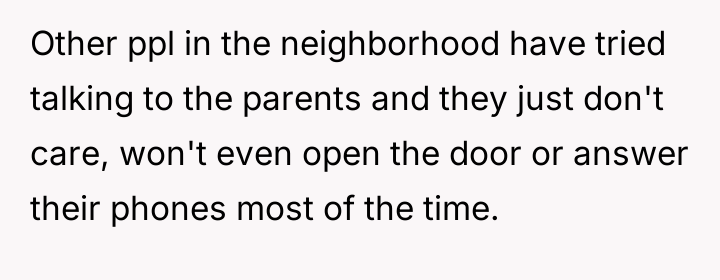
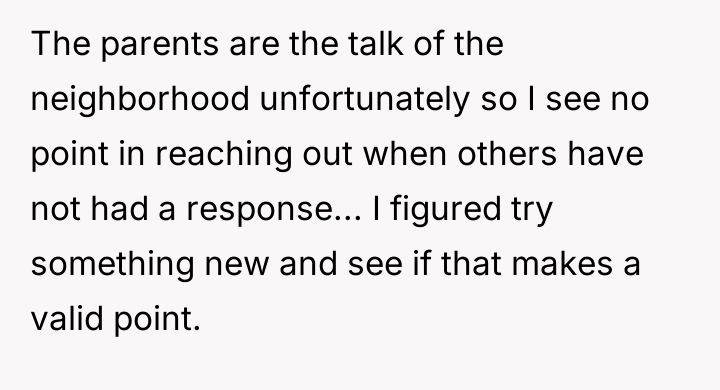
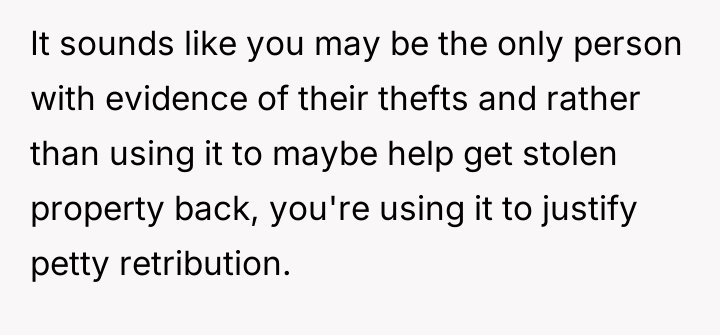
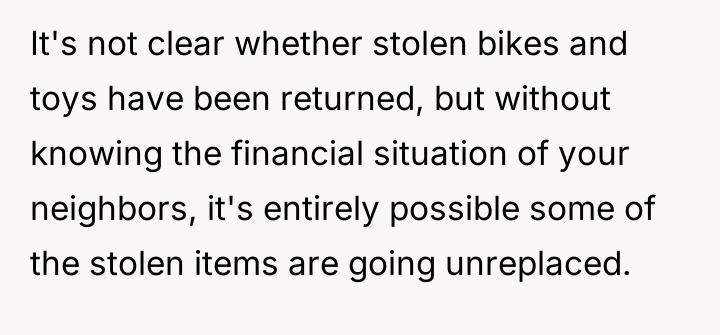

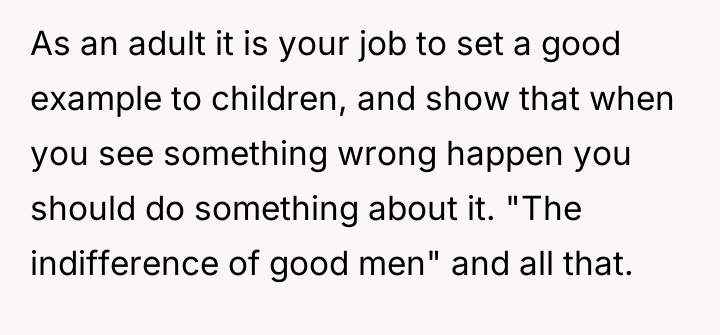
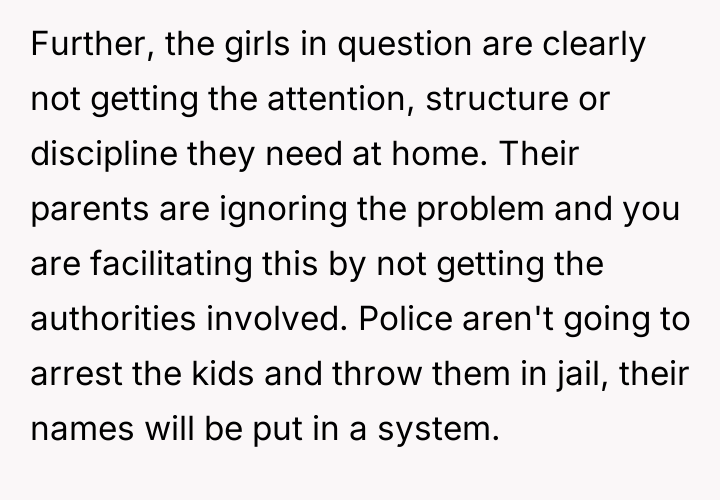
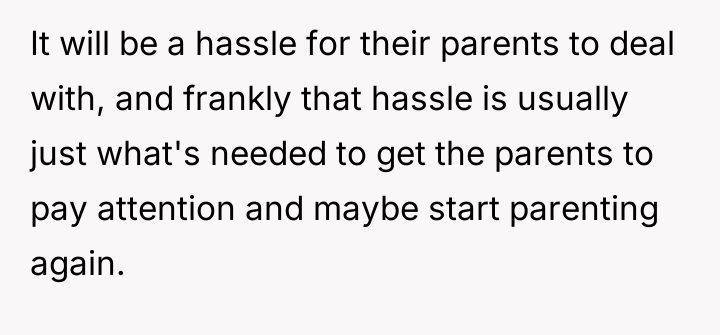
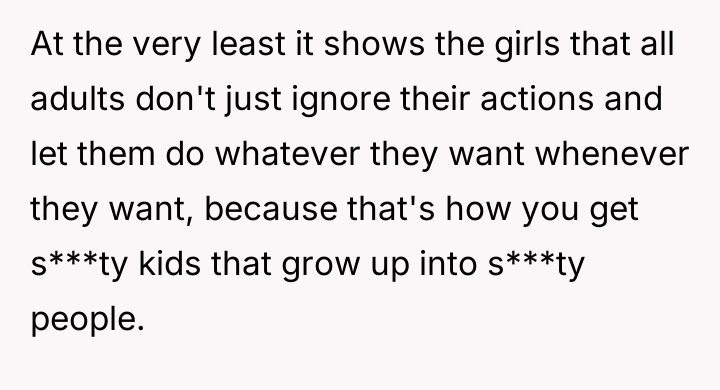

The original poster (OP) acted out of frustration and a desire for retribution after experiencing repeated theft and failing to find support through official channels like involving the police or contacting unresponsive parents. This led the OP to take matters into their own hands by creating bait packages containing waste, directly conflicting with societal norms regarding appropriate responses to minor property crime involving children.
Was the OP's highly unconventional and unsanitary action of sending feces as a 'lesson' a justifiable reaction to ongoing property theft and parental neglect, or did this response cross an ethical and legal line, escalating the situation beyond what was necessary?